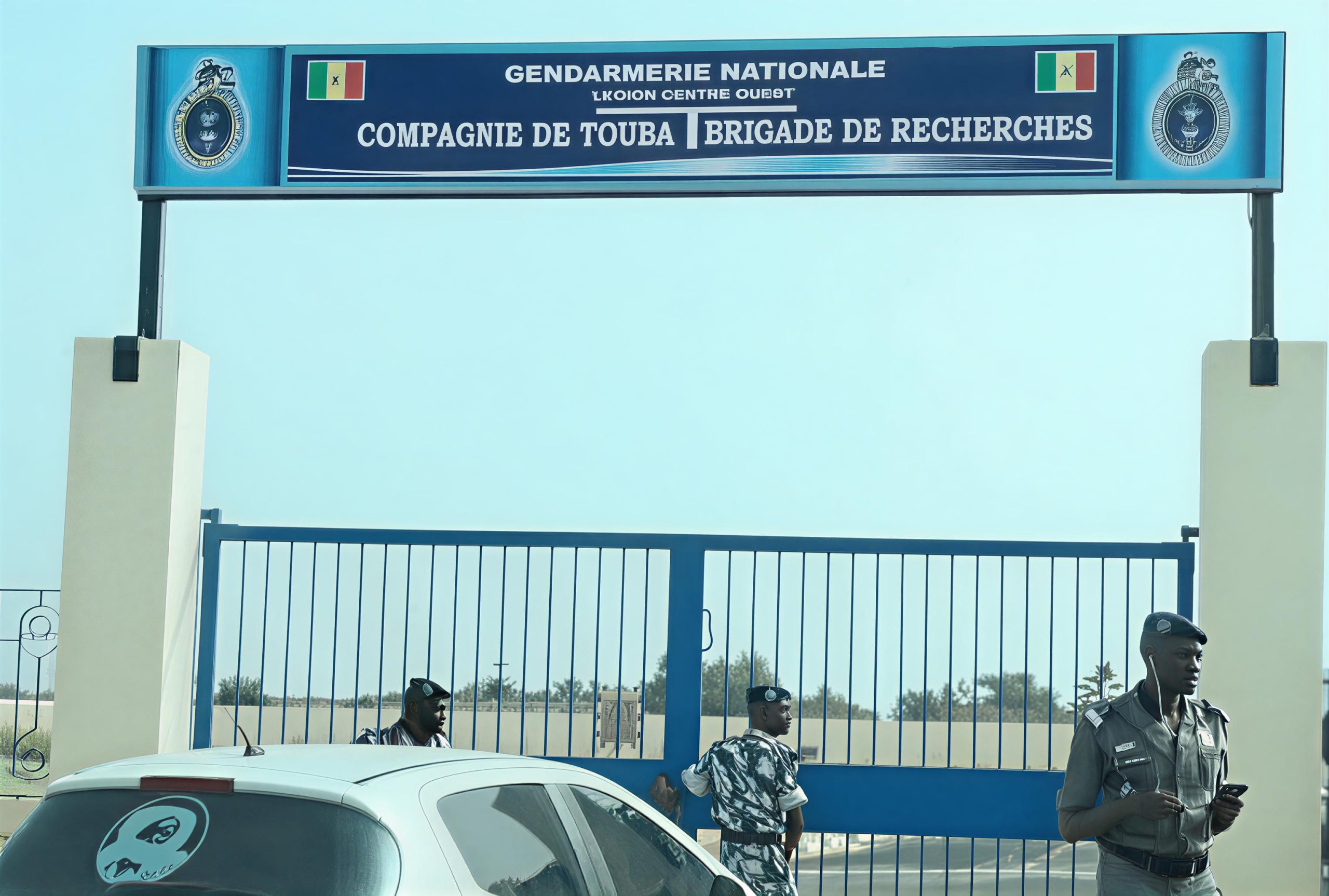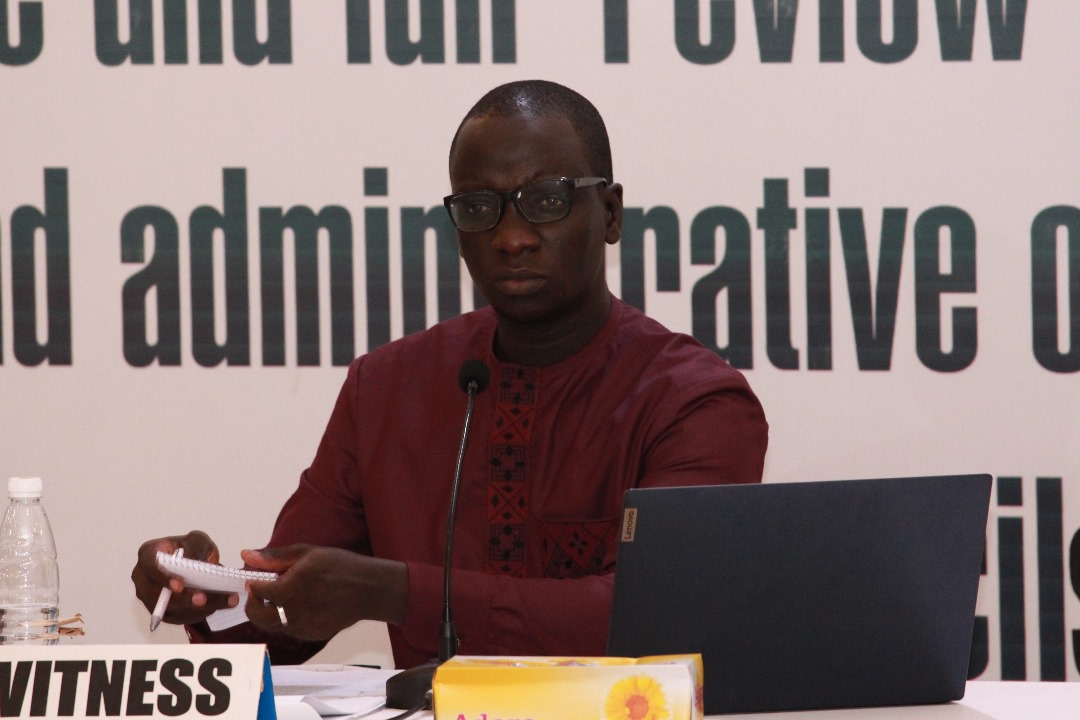Gambiaj.com – (BANJUL, The Gambia) – Modou Jonga, the former Chief Executive Officer (CEO) of the Brikama Area Council (BAC), faced a second day of intense questioning on Wednesday as he continued his testimony before the Local Government Commission of Inquiry. The Commission, established to investigate the financial and administrative operations of local government councils between May 2018 and January 2023, scrutinized Jonga’s role in the alleged financial mismanagement under his leadership.
Lead Counsel Patrick Gomez led the inquiry, confronting Jonga with audit queries and other relevant information about BAC’s operations. Throughout the session, Jonga conceded to several lapses in oversight, acknowledging his failures to enforce the transparency and accountability mechanisms mandated by law. The laws governing BAC’s operations include the 1997 Constitution, the Local Government Act, the Local Government Finance and Audit Act, and the Financial Manual for Local Government Councils.
During the proceedings, Jonga requested more time to retrieve vouchers related to transactions flagged by auditors. While he was able to provide some documents, including his confirmation letter as CEO, an updated Council’s Asset Register for 2022, and internal audit reports, he struggled to substantiate claims regarding internal control measures and the proper handling of revenue collections.
One of the most contentious issues was the alleged suppression of council funds by revenue collectors. The auditors highlighted that substantial amounts were withheld by collectors, which significantly impacted BAC’s revenue. Despite claiming that he had instructed all collectors to deposit their collections directly into the bank, Jonga admitted to not having sufficient oversight to ensure compliance. When confronted with evidence from collectors who testified that they handed over cash to the Director of Finance, Jonga maintained he was unaware of such practices.
Jonga’s testimony also revealed discrepancies in the management of BAC’s financial operations. For instance, he acknowledged the excessive number of bank accounts inherited from his predecessor, which contravened the Local Government Finance and Audit Act that mandates councils to maintain a Council Development Fund.
The inquiry further exposed issues with internal audits, particularly regarding cash shortages and unaccounted funds from auction sales. Jonga expressed disappointment with the Internal Auditor, accusing him of failing to diligently report on the suppression of revenue and other irregularities. He accepted responsibility for the lack of oversight but also shifted some blame to the heads of departments and units under his administration.
As the questioning continued, it became apparent that Jonga’s leadership was marred by systemic failures in financial management and accountability. His admissions before the Commission underscore the broader challenges facing local government councils in adhering to statutory financial regulations.
The inquiry into the financial and administrative operations of the BAC is ongoing, with further testimonies expected to shed more light on the extent of the alleged mismanagement and its impact on public funds.










